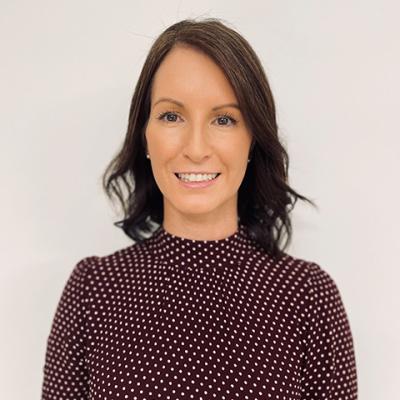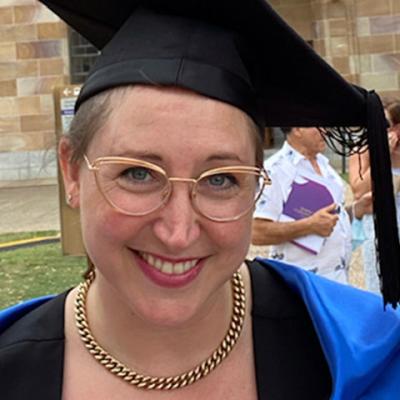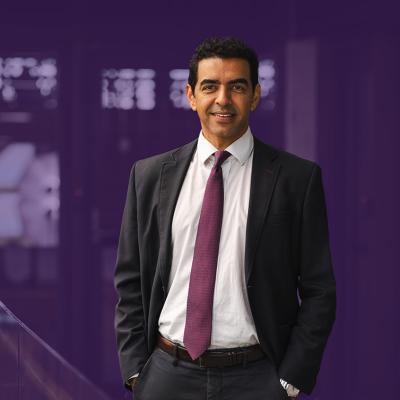Every sector can gain immense benefits from staff who possess highly developed leadership and management capabilities. But this is especially true for healthcare, an industry that has people at its core.
Amid rapid industry changes and technological advancements, healthcare systems must evolve while prioritising quality patient care. To navigate this challenging, volatile environment, there’s growing demand for the innovative business leadership skills taught in top MBA programs. For example, over the last 5 years, applicants from the healthcare industry have been one of the largest cohorts of the UQ Master of Business Administration (MBA) program, equalling around 7% of students.
On an individual level, healthcare workers may identify opportunities for innovation and growth in their organisations but feel they lack the managerial capacity or skills to lead solutions. Finding such a gap in your own knowledge or experience can be a formative stepping stone for taking the next step in your career. For many of our graduates with a background in health, the UQ MBA has opened a realm of new possibilities.
MBA for medical professionals to transition into senior management and executive leadership roles
Helen's MBA story
With a background in dietetics, clinical nutrition and exercise sports science, Helen Barker leveraged the MBA to broaden her strategic thinking, enhance her leadership capabilities and transition into roles with greater influence and impact.
“As a health professional, business skills aren't typically part of your degree,” she says.
“Pursuing an MBA was essential for me because it pushed me to develop the skills I knew were necessary for career advancement."
Now working as the general manager and a director at Axis, Helen leads a national team of over 200 health professionals and support staff delivering onsite physiotherapy and psychology services to large organisations across Australia and New Zealand.
Helen says the MBA provided her with the tools to navigate complex systems, lead multidisciplinary teams and drive innovation in patient care and service delivery. It also connected her with a strong network of peers, which led to new career outcomes.
Tanya’s MBA story
Tanya Kelly was working as an anaesthetist when she was asked last-minute to attend an executive meeting and negotiate on behalf of a health service for a local private hospital. She felt out of her depth when it came to understanding what was being said from a business perspective.
“I realised I had a choice,” says Tanya.
“I could either stay in my clinical domain or I could look at developing new business leadership skills.”
Tanya challenged herself by enrolling in the UQ MBA to diversify her skill set and prepare for executive positions.
“I wanted a degree that was much broader, deeper, more modern and that would push me to think about things in a different way," she says.
"I wanted to learn new skills so I could put something back into the organisation from the outside.”
Since graduating from the program, Tanya has worked in executive director and C-suite roles. Now, she’s working as acting deputy director-general at eHealth Queensland. She’s also the chair of Queensland Clinical Senate and a member of several industry boards.
MBA for medical professionals to strengthen capabilities in current roles and explore entrepreneurial opportunities
Alex's MBA story
Before starting his UQ MBA, Dr Alex Chaudhuri's primary focus was delivering the best bedside care to his patients in the Infectious Diseases Unit at Brisbane's Prince Charles Hospital. When considering how to strengthen the quality of care across clinics and health services, it became evident to Alex that modern medicine relies on organisational directives being handled with adept management and clear communication.
“The MBA made me realise leadership is the bedrock of business,” he says.
“That’s why the MBA is critically important to health care – it’s essentially a people business, in every way you look at it."
“I saw how the leadership frameworks and tools I studied helped me be more effective at work. I learned to be more compassionate, more empathetic, and ultimately more effective as a result. That’s a very powerful thing.”
In addition to working as the director of Infectious Diseases at Prince Charles Hospital, after completing his MBA, Dr Alex launched SureText, a secure messaging app designed to improve communication between health professionals.
Phil’s MBA story
After 10 years of working as a polysomnographer and clinical educator, Phil Teuwen enrolled in the MBA program hoping to transition away from clinical duties and learn how to better navigate complex organisational challenges.
“I hadn’t thought much past the qualification itself or the few new letters to put after my name; I certainly didn’t foresee all the great experiences and opportunities that became available with such a high-calibre network of peers from the program,” he says.
"The MBA taught me to lift my game to a whole new level, because your fellow students at UQ are at the top of theirs. I’ve experienced first hand that the quality put forward by UQ MBA students is often on a similar level (or higher) as that from the Ivy League schools overseas.”
Five years after completing the program, Phil launched his own business, Bedpost Sleep Collective, an allied health-led sleep disorders service with registered and certified clinical physiologists.
MBA for medical professionals to expand opportunities and change direction
Claire’s MBA story
Claire Johnston is a former principal health adviser at Mott MacDonald and a UQ MBA alum. She believes the challenges facing healthcare require medical professionals to adapt and advance their abilities.
“A medical degree, nursing degree or physiotherapy degree does not equip people with the skills needed to deal with all the issues you end up having to deal with in this profession,” says Claire.
She suggests that having an MBA while working in healthcare fosters strategic thinking to engage with key issues, such as patient monitoring solutions, data handling and managing rising costs. More and more, executive and management positions in healthcare require leaders with business acumen who can identify development potential and implement strategic plans.
“The reality is that you won’t get employed in a senior leadership position in healthcare without a postgraduate qualification,” says Claire.
Having now transitioned into a role as director of operations at Protegas Australia, Claire says the UQ MBA prepares students for new challenges by equipping them with a diverse skillset.
Suzanne’s MBA story
Some healthcare professionals want to apply their MBA learnings and medical background to new career opportunities. UQ’s MBA gave Suzanne Wood the opportunity to develop the business skills required to expand her career prospects.
“I’d reached a point of minimal returns for effort," she says.
"I needed some way to jump the ladder and have more influence.”
“There are limited pathways in nursing with how far you can go in terms of progression past the mid-management level and truly becoming an influential decision maker."
After completing her MBA, Suzanne moved into consulting, utilising her understanding of healthcare, management and business strategy. She’s now pursuing a PhD and working as a research assistant at the Centre for Business and Economics of Health.
By learning alongside high-level professionals in other industries, the UQ MBA is the MBA for medical professionals who want to broaden their expertise, branch out to explore a new industry or pursue leadership positions in healthcare.
Ready to take the next step in your career?










